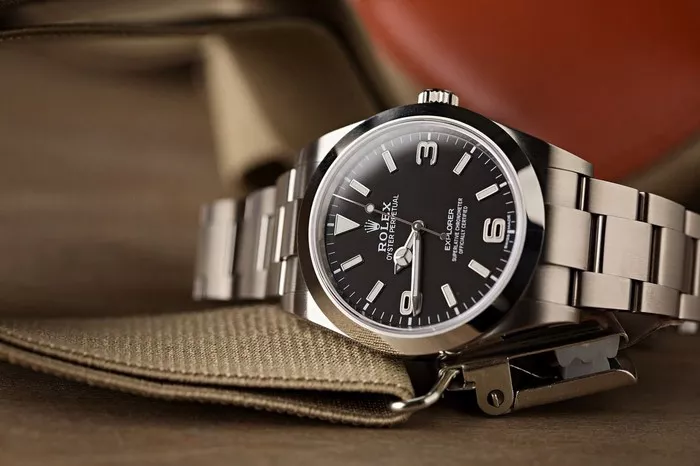The allure of acquiring a Rolex, one of the most prestigious and sought-after watch brands, often prompts enthusiasts to explore avenues that might offer a more favorable price. Among the various considerations, the idea of purchasing a Rolex in Switzerland, the brand’s home country, has gained traction. In this article, we dissect the factors that contribute to the perception of affordability and whether buying a Rolex in Switzerland is indeed a cost-effective endeavor.
1. Understanding the Swiss Connection:
The Birthplace of Rolex: Switzerland is not just a hub for watchmaking; it’s the birthplace of Rolex. The Swiss watch industry, known for its precision and craftsmanship, has a significant impact on the pricing of luxury watches, including Rolex.
Myth or Reality: The notion that buying a Rolex in Switzerland is cheaper is a complex one, influenced by various elements beyond just geographical proximity.
2. Impact of Swiss Franc Exchange Rates:
Currency Fluctuations: Exchange rates play a crucial role in determining the cost of luxury items. The Swiss Franc (CHF) is the local currency, and its fluctuations against other currencies can affect the perceived affordability of Rolex watches.
Global Currency Dynamics: While the exchange rate is a factor, it’s essential to consider that Rolex prices are globally standardized by the brand. The impact of currency fluctuations might not result in a significant cost difference.
3. Value Added Tax (VAT) Refund:
Switzerland’s VAT Rate: Switzerland has a relatively low Value Added Tax (VAT) rate compared to some other European countries. Visitors to Switzerland can potentially benefit from a VAT refund on their purchases.
Eligibility and Process: To qualify for a VAT refund, individuals need to be non-residents of Switzerland and adhere to specific procedures. While this can reduce the effective price, it may not make a substantial difference in the overall cost.
4. Rolex’s Global Pricing Strategy:
Consistency Across Markets: Rolex maintains a consistent pricing strategy globally. The brand sets standard retail prices for its watches, regardless of the country or region in which they are sold.
Brand Equity and Perceived Value: Rolex’s commitment to consistent pricing reinforces its brand equity and the perceived value of its watches. This approach aims to provide a uniform and premium experience to customers worldwide.
5. Dealer Markup and Negotiation:
Role of Authorized Dealers: Authorized Rolex dealers play a pivotal role in the distribution of the brand’s watches. They adhere to Rolex’s pricing guidelines, ensuring uniformity in the cost of watches.
Dealer Markup Dynamics: While prices are standardized, individual dealers may have slight variations in their service and handling fees. Negotiation might be a factor, but significant discounts on Rolex watches are rare due to the brand’s exclusivity.
6. Duty-Free and Airport Purchases:
Duty-Free Considerations: Duty-free shops at airports or specific retail locations might offer tax-free purchases. However, the availability of specific models can be limited, and the savings may not be substantial.
Travelers’ Perspective: For individuals traveling to Switzerland, exploring duty-free options can be a worthwhile consideration. However, it’s crucial to compare the potential savings against the overall travel expenses.
7. Global Market Dynamics:
Global Demand and Availability: Rolex watches, particularly sought-after models, often face high demand and limited availability worldwide. The global dynamics of the luxury watch market influence prices and the accessibility of specific models.
Exclusivity and Rarity: The exclusivity and rarity of certain Rolex models contribute to their desirability, impacting their market value. This can result in consistent pricing, regardless of the geographical location of purchase.
Conclusion:
In the pursuit of a Rolex timepiece, the idea of buying one in Switzerland for a potentially lower cost is a narrative fueled by various factors. While the Swiss connection adds a layer of romance to the purchase, the reality is more nuanced. Rolex’s global pricing strategy, consistent brand equity, and the intricate dynamics of the luxury watch market contribute to the uniformity of prices across different regions.
Ultimately, the decision to buy a Rolex in Switzerland should be guided by a holistic consideration of factors, including individual preferences, travel plans, and the overall cost-benefit analysis. While some savings might be realized through VAT refunds or duty-free purchases, the primary draw remains the unique experience of acquiring a Rolex in the heartland of horology.
As enthusiasts embark on the journey of Rolex ownership, it’s essential to approach the decision with a balanced perspective, recognizing that the intrinsic value of a Rolex transcends geographical boundaries. The pursuit of horological excellence is a global endeavor, and whether acquired in Switzerland or elsewhere, a Rolex remains a timeless symbol of precision, craftsmanship, and enduring luxury.

